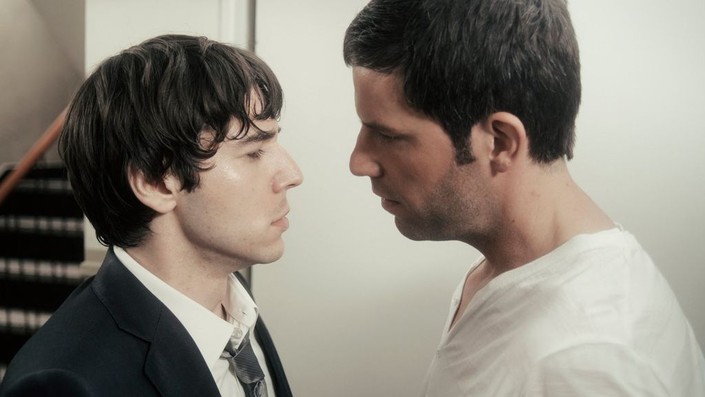Sasha is a German coming-of-age drama directed by Dennis Todorović, released in 2010. It is a heartfelt and sometimes bittersweet exploration of identity, sexuality, and family expectations, set in the multicultural city of Cologne. The film follows the life of Sasha, a gifted young pianist, during a pivotal week when he must navigate his feelings for his music teacher while managing the cultural pressures of his Montenegrin immigrant family.
Sasha, played by Sasha Kekez, is on the brink of adulthood and facing the kind of decisions that will define his future. His parents, loving but traditional, expect him to excel both academically and musically. His mother is supportive yet overbearing, while his father has a more rigid view of masculinity and family honor. Beneath this family framework lies Sasha’s closely guarded secret: he is in love with his piano teacher, Mr. Weber.
When Mr. Weber announces he will be moving away, Sasha’s carefully balanced emotional world begins to collapse. This news not only threatens his musical routine but also forces him to confront his feelings more directly. Sasha’s best friend Jiao, who secretly harbors romantic feelings for him, becomes another emotional anchor—her presence underscoring the complexities of unspoken affection and missed signals.

The film gently unfolds as a series of everyday moments, showing Sasha’s interactions with his family, friends, and the city around him. These scenes carry the dual weight of adolescent self-discovery and the cultural identity struggle of a young man caught between two worlds. His Montenegrin heritage, with its strong emphasis on family reputation, makes his feelings for another man all the more difficult to share openly.
Performances throughout the film are natural and grounded. Sasha Kekez gives the title character both vulnerability and quiet determination, capturing the turmoil of someone who wants to be true to himself but fears disappointing those he loves. The supporting cast, including Predrag Bjelac as Sasha’s father and Zeljka Preksavec as his mother, lend authenticity to the family dynamics, portraying both warmth and generational tension.
Director Dennis Todorović uses Cologne as more than just a backdrop; the city’s cultural diversity and its blend of tradition and modernity mirror Sasha’s own internal conflict. The film avoids overly melodramatic turns, instead finding drama in small moments—shared glances, restrained conversations, and the subtle shifts in relationships as truths hover just below the surface.

Critics have praised Sasha for its sincerity and understated emotional core, noting that it sidesteps many clichés of queer coming-of-age stories by situating the narrative within a specific immigrant experience. While some viewers may find the film’s pacing slow, its measured tempo allows the characters and relationships to breathe, creating an atmosphere of intimacy and realism.
In the end, Sasha is not about grand declarations or dramatic confrontations. It’s about a young man quietly wrestling with who he is, who he loves, and how those truths can coexist within the fabric of his family and cultural heritage. By blending personal tenderness with social commentary, the film offers a moving portrait of love, identity, and the courage it takes to reconcile the two.
-1754468629-q80.webp)
